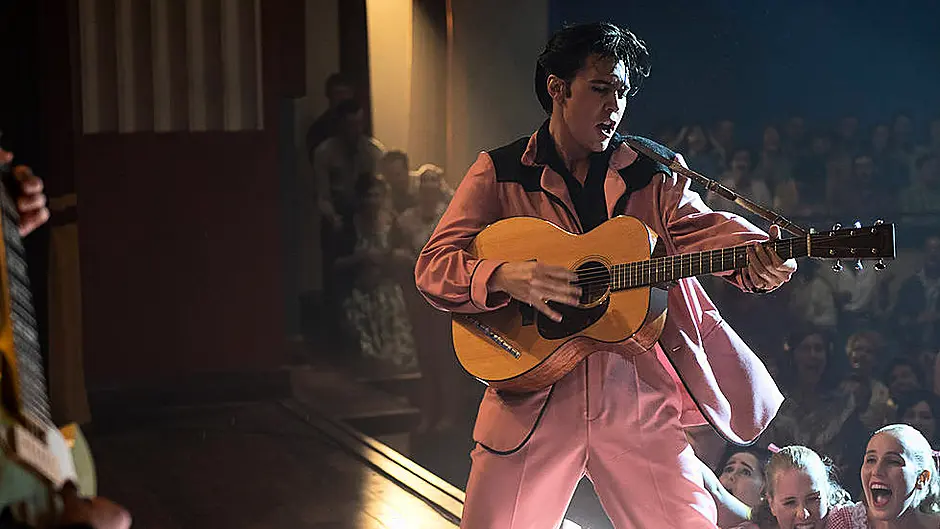I’VE always thought a lot can be said about a film if you look at your Google search history in the hours after you first see it.
For me, and for Baz Luhrman’s Elvis, it read a little something like this: Elvis film runtime, Austin Butler Elvis photo, Did Austin Butler sing in Elvis, Austin Butler films, Austin Butler interviews.
In case you hadn’t noticed, Austin Butler steals the show. His performance as The King is truly mesmerising, putting recent legendary singer turns by Rami Malek as Freddie Mercury and Taron Egerton as Elton John to shame.
Both are great in their own right, but the difference between Butler and others is that he manages to encapsulate the charisma and myth of Elvis through every look and movement.
While Malek felt like he was doing an incredible impression and Egerton managed to make Elton John his own, Butler – as cheesy as it sounds – became Elvis. From the first swing of his hips to the last straining note, it felt like we were watching Mr Presley himself.
However, despite Butler’s best efforts, the cast around him and the director’s choices lead to a fun but ultimately disappointing experience.
'An opulent hurricane'
Baz Luhrmann is, on paper, the perfect person to direct a film about Elvis Presley. The Australian maximalist has adapted the tragedy and romance of Romeo and Juliet, the glamour and cynicism of The Great Gatsby, and the seduction and desire of Moulin Rouge!
Elvis’ story contains all of that and more and should have made it a perfect marriage of subject and style. What we instead got was an almost three-hour fever dream.
From the very first montage – a glittering kaleidoscope of swooping cameras and flashing Las Vegas lights – the film announces itself as loudly as you might expect.
Luhrmann makes no apologies for his flashy style, and it can be dizzying at times. He doesn’t give you a moment to rest as even in straightforward conversational scenes the camera is moving and slowly winding up before being let loose on the next flying montage.
In the moments he does take a slight step back and give Butler some space to really perform, it comes alive.
The decision to have the story told from the point of view of Elvis’ infamous manager, Colonel Tom Parker (Tom Hanks), makes little sense. It flattens the all the complexities of the story.
Some of those are hinted at – his close relationship with his mother, accusations of cultural appropriation of black music and culture – while others, like the fact he first met Priscilla when she was 14 and he was 24, are left out.
There is no way to describe Hanks in this film other than plain weird. Despite having such a long time to get used to it, his accent grates throughout. For those of you who have seen House of Gucci, think Jared Leto but with a little less charisma and a lot less commitment.
The inclusion of modern music also fell flat at times. Seeing Elvis walk down Beale Street – the home of blues – as Doja Cat played felt wrong, while the film’s remix of In The Ghetto features one of the worst rap lines put to music: ‘Born in the ghetto, tryna make it out. I try to go but I get stuck, it’s like I’m trapped inside a tiny box.’
Believe me, it’s even worse than it sounds.
Elvis is a film that sidesteps nearly everything that’s interesting about the mythical character to instead revel in a level of maximalism previously unattainable. It’s an opulent hurricane of quick cuts and cheesy lines that at times allows itself to be swept away on the wind it creates.
However, all of that is also what makes it interesting – and my leg was still tapping for almost the entire film, which can’t be a bad thing.
VERDICT - WORTH A WATCH








